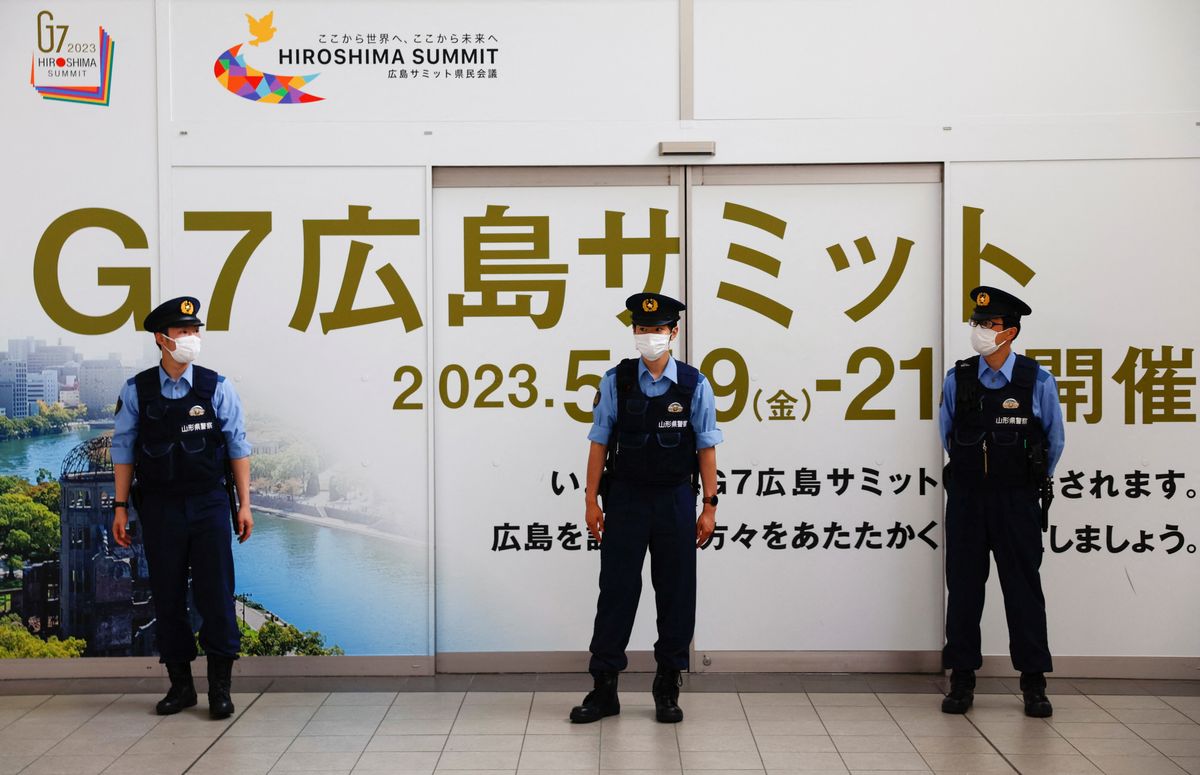The G7 summit kicks off in Hiroshima, Japan
At this year’s summit, two countries that aren’t invited, China and Russia, are on everyone’s minds.

A few minutes every morning is all you need.
Stay up to date on the world's Headlines and Human Stories. It's fun, it's factual, it's fluff-free.
The backstory: The Group of 7 (G7) major industrial democracies (Canada, France, Germany, Italy, Japan, the UK and the US) have their leaders meet once a year in one of their countries. Traditionally, leaders from countries outside of the G7 and international organizations are also invited to join in on some of the conference’s meetings. While there are typically a few different G7 conferences throughout the year, there’s one major one that the countries’ leaders are all expected to attend. At this major summit, they usually talk about international issues that deal with economics, security, climate change, human rights and more. The first of these was hosted by France in 1975.
More recently: This year, with Japan hosting, Prime Minister Fumio Kishida has been stressing the importance of working with developing countries. Outside of the G7, other countries invited to the summit include Australia, Brazil, Comoros, Cook Islands, India, Indonesia, South Korea and Vietnam.
At this year’s summit, two countries that aren’t invited, China and Russia, are on everyone’s minds. With China, things are a bit complicated because the G7 sees it as both a challenge to global supply chains and economic security, but the bloc is split on how to deal with that and also maintain ties with the country as a big trade partner. With Russia, the G7 sees its ongoing war against Ukraine as a major security setback.
The development: The annual G7 summit kicks off on Friday in Japan’s Hiroshima. This location is no coincidence – it is the site of the world’s first atomic attack when the US dropped a nuclear bomb that killed hundreds of thousands in WWII. With all the tensions between huge nuclear powers, it will be a stark reminder of the dangers of nuclear arms.
The leaders are expected to condemn the war in Ukraine again, with Ukrainian President Zelenskiy joining in virtually. The G7 already has sanctions on Russia, and those will be brought up, too. When it comes to China, Taiwan is definitely a talking point on the agenda, and there will probably be some discussion about disputed regions of the South China Sea. Western economic dependency on China is also on the table. Aside from the geopolitics between those two, though, it looks like Kishida will meet with US President Joe Biden and South Korean President Yoon Suk Yeol to talk more about security cooperation and possibly nuclear deterrence.
Key comments:
“I believe the first step toward any nuclear disarmament effort is to provide a first-hand experience of the consequences of the atomic bombing and to firmly convey the reality,” Japanese Prime Minister Fumio Kishida said Saturday, referring to the decision to host the summit in Hiroshima.
"They have to address economic security and how to deal with sensitive technologies," said Narushige Michishita, a professor at the National Graduate Institute for Policy Studies (GRIPS) in Tokyo. "Everything is part of the great power competition that is taking place between the United States and Russia, and the United States and China."
“If you think about what’s happening in world politics … we’re increasingly worried about the United States-China relationship veering into conflict,” Brookings Institute’s director for East Asia policy studies Mireya Solis said in a recent podcast.




Comments ()